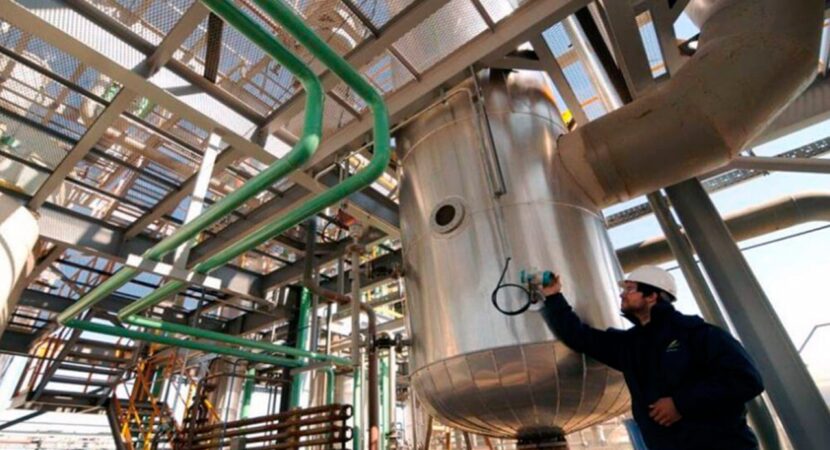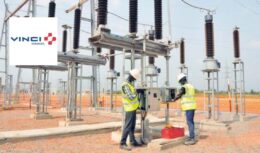
Ethanol generates 90% less emissions than gasoline and is internationally recognized for not posing a risk to native forests
Cars with flex-fuel engines were launched in Brazil in March 2003 and, since then, the new technology that allows the use of ethanol fuel has prevented the emission of more than 566 million tons of CO2 into the atmosphere in Brazil, according to the Sugarcane Industry Union (Unica). The volume is equivalent to the annual emissions added in neighboring countries: Argentina, Venezuela, Chile, Colombia and Uruguay.
Read also
- Raízen will help Brazil expand ethanol globally by licensing 2nd generation technology to other countries
- Prices of gasoline, ethanol, diesel and CNG keep rising and the newest CNG fuel came to 'save' application drivers, taxi drivers and workers
- Volkswagen announces the installation of the Baterias Moura factory, in its industrial complex in RJ, for the production of the first electric truck in Brazil!
- Sale of hydrated ethanol between distributors was definitively prohibited by the National Agency of Petroleum, Natural Gas and Biofuels
- Ethanol price soars and reaches almost R$ 7 at gas stations; reduction promises to arrive in the coming weeks to ease the consumer's pocket
The information was based on the methodology for measuring the standard of greenhouse gas (GHG) emissions from fuels, established by the National Biofuel Policy – RenovaBio, and used data from the National Agency of Petroleum, Natural Gas and Biofuels (ANP).
Renovabio controls 86% of the alcohol (anhydrous and hydrated) sold in Brazil
Currently, 86% of the ethanol sold in the country is certified by RenovaBio, guaranteeing traceability and the effectiveness of reducing emissions and nullifying direct and indirect deforestation, said the entity.
“The covid-19 pandemic reinforced the urgency of taking effective measures to combat climate change. In Brazil, like nowhere else in the world, we have a mature renewable fuel industry, which has been contributing year after year to the reduction of greenhouse gas emissions", analyzed Evandro Gussi, president of Unica, noting that the International Energy Agency (IEA) has already pointed out the importance of programs such as Renovabio to zero emissions by 2050.
The sustainability of the chain is enhanced by the use of by-products from ethanol production to generate low-carbon electricity. In 2020, the bioelectricity offered to the grid by the sugar-energy sector grew 1% compared to 2019, with a volume of 22.604 GWh. Of this total, 83% were offered between May and November, the dry period.
Ethanol generates 90% less emissions than gasoline and is internationally recognized for not posing a risk to native forests
According to the 2021 National Energy Balance, published by the Energy Research Company (EPE), sugarcane accounts for 19,1% of all primary energy supply in Brazil, taking into account ethanol and bioelectricity, and 39,5% of all renewable energy.
EPE also states that ethanol generates 90% less emissions than gasoline, and that it is internationally recognized for not posing a risk to native forests. Sugarcane plantations destined for the production of ethanol occupy only 0,8% of the national territory and are located more than 2 thousand kilometers from the Amazon.
“Sustainability is a strategic differential of the sugar-energy sector recognized in Brazil and in the world, and it is part of the value proposition of products derived from sugarcane, essential for the sustainable recovery of the country's economic growth”, concluded Gussi.
Raízen will help Brazil expand ethanol globally by licensing 2nd generation technology to other countries
Francis Queen, vice-president of ethanol, sugar and bioenergy at Raízen, stated that the company may license second-generation ethanol technology, or 2G, to other countries,
The director of Biofuels at the Ministry of Mines and Energy, Pietro Mendes, was present at the same event, who said that the government works to expand ethanol globally both in terms of public policies and with the private sector. “It is important that other governments understand how Brazil has developed a public policy on ethanol, what regulation is like. But that doesn’t work without the private sector either,” he said.
President of Volkswagen in Latin America says that the current moment is critical to define whether Brazil "will be a protagonist or not" in ethanol. "Technology and energy are changing very quickly, and we need to embrace that."













Army summons Brazilians with up to…
Come be a watermelon, you too
Air Force F-16 fighters…
Which genocide are you talking about? Than…
Air Force F-16 fighters…
Everything is fine, 100-year secrecy,…
Air Force F-16 fighters…
Well... It's flying scrap... Typical...
Brazil begins an ambitious journey…
Very poor project with the final station…
All that’s left to do is send it to the Equipment Inspector.
Shou
I'm interested
I would like to work as an inspection technician…
The Portuguese errors here already disapprove…
In Mozambique there is also Nóbio
I've been waiting two months and 25...
I am 66 years old. I've been…